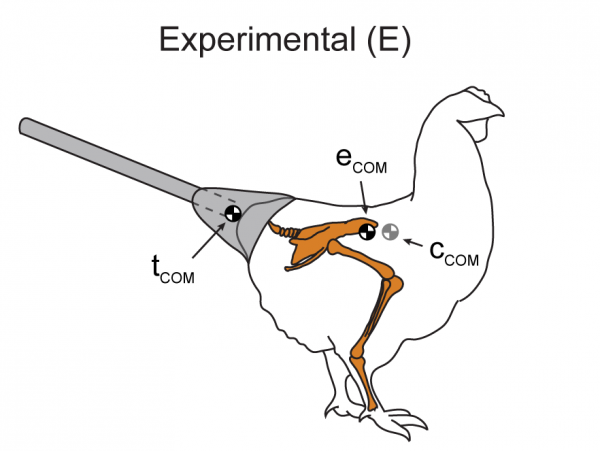La science avance, et est sur le chemin de guérir les gens de la religion (et de la xénophobie).
New research involving a psychologist from the University of York has revealed for the first time that both belief in God and prejudice towards immigrants can be reduced by directing magnetic energy into the brain.
Dr Keise Izuma collaborated with a team from the University of California, Los Angeles (UCLA), to carry out an innovative experiment using transcranial magnetic stimulation, a safe way of temporarily shutting down specific regions of the brain.
The researchers targeted the posterior medial frontal cortex, a part of the brain located near the surface and roughly a few inches up from the forehead that is associated with detecting problems and triggering responses that address them.
In the study, half of the participants received a low-level “sham” procedure that did not affect their brains, and half received enough energy to lower activity in the target brain area. Next, all of the participants were first asked to think about death, and then were asked questions about their religious beliefs and their feelings about immigrants.
The findings, published in the journal Social Cognitive and Affective Neuroscience, reveal that people in whom the targeted brain region was temporarily shut down reported 32.8% less belief in God, angels, or heaven. They were also 28.5% more positive in their feelings toward an immigrant who criticised their country.
Dr Izuma, from the University’s Department of Psychology, said: “People often turn to ideology when they are confronted by problems. We wanted to find out whether a brain region that is linked with solving concrete problems, like deciding how to move one’s body to overcome an obstacle, is also involved in solving abstract problems addressed by ideology.”
This interest in the brain basis of ideology led the team to focus on religion and nationalism.
Dr Izuma added: “We decided to remind people of death because previous research has shown that people turn to religion for comfort in the face of death. As expected, we found that when we experimentally turned down the posterior medial frontal cortex, people were less inclined to reach for comforting religious ideas despite having been reminded of death.”
The investigators asked participants to respond to both negative and positive emotional aspects of religion and of nationalism. Specifically, they rated belief in the Devil, demons, and Hell, in addition to God, angels, and heaven. All potential participants were pre-screened to make sure that they held religious convictions before beginning the experiment.
With regard to nationalistic ideology, the participants read two essays ostensibly written by recent immigrants. One essay was extremely complimentary toward the United States, and the other essay was extremely critical.
The investigators found that the magnetic stimulation had the greatest effect on reactions to the critical author.
“We think that hearing criticisms of your group’s values, perhaps especially from a person you perceive as an outsider, is processed as an ideological sort of threat,” said Dr Izuma.
“One way to respond to such threats is to ‘double down’ on your group values, increasing your investment in them, and reacting more negatively to the critic,” he continued.
“When we disrupted the brain region that usually helps detect and respond to threats, we saw a less negative, less ideologically motivated reaction to the critical author and his opinions.”
Dr Colin Holbrook, from UCLA and the lead author of the paper, added: “These findings are very striking, and consistent with the idea that brain mechanisms that evolved for relatively basic threat-response functions are repurposed to also produce ideological reactions. However, more research is needed to understand exactly how and why religious beliefs and ethnocentric attitudes were reduced in this experiment.”
The scientists say that whether we’re trying to clamber over a fallen tree that we find in our path, find solace in religion, or resolve issues related to immigration, our brains are using the same basic mental machinery.
The University of York, news: “Research that is simply beyond belief”.

1. Le 23 décembre 2015,
blah
Ne faut-il pas lire “ni ZFC ni PA, s’ils sont consistants, ne peuvent être axiomatisés” (pluriel, et un “pas” en trop) ?
2. Le 25 décembre 2015,
OlivierJ
A mon avis c’est surtout que “consistant” ici est un anglicisme classique (d’habitude en informatique), en français la formulation correcte c’est “cohérent”.
3. Le 25 décembre 2015,
Pagliaccio
Gardons les traditions.
https://www.youtube.com/watch?v=yRfvSOuwM_4
4. Le 27 décembre 2015,
Domum
“Nourriture pour l’esprit” ? Indigestion, je viens de gerber ! (je viens de faire un axiome à ton texte :) )
5. Le 1 janvier 2016,
narvic
@ Olivierj
Non, non, en bon français mathématique, et notamment dans le cas de Gödel, on dit bien “consistant”.
6. Le 1 janvier 2016,
narvic
@ blah
S’il n y a “ni ZPC ni PA”, le pluriel me semble excessif. Un singulier suffit bien. C’est comme avec “aucun”. Ex. : aucun d’entre eux n’est venu.
7. Le 19 janvier 2016,
Philip_Marlowe
@narvic Si je lis la page d’homonymie concernant le terme de consistance dans Wikipédia, je vois les distinctions suivantes :
la consistance (mathématiques), propriété d’un schéma en analyse numérique
la cohérence, en traduction impropre de l’anglais consistency en divers sciences. Sur le même site, la page consacrée à la logique mathématique comporte ceci : Un système de déduction est cohérent (on emploie aussi l’anglicisme consistant) […].
L’anglicisation de notre vocabulaire scientifique et technique est un fait. Un de mes fils, physiothérapeute, nomme différemment les os du squelette de la manière dont je les ai appris à l’école, dans un but de compréhension internationale. Il n’empêche que je comprends tout de suite lorsqu’on parle de cohérence, tandis que s’il s’agit de consistance, j’ai tendance à penser en premier à une pièce de bœuf.